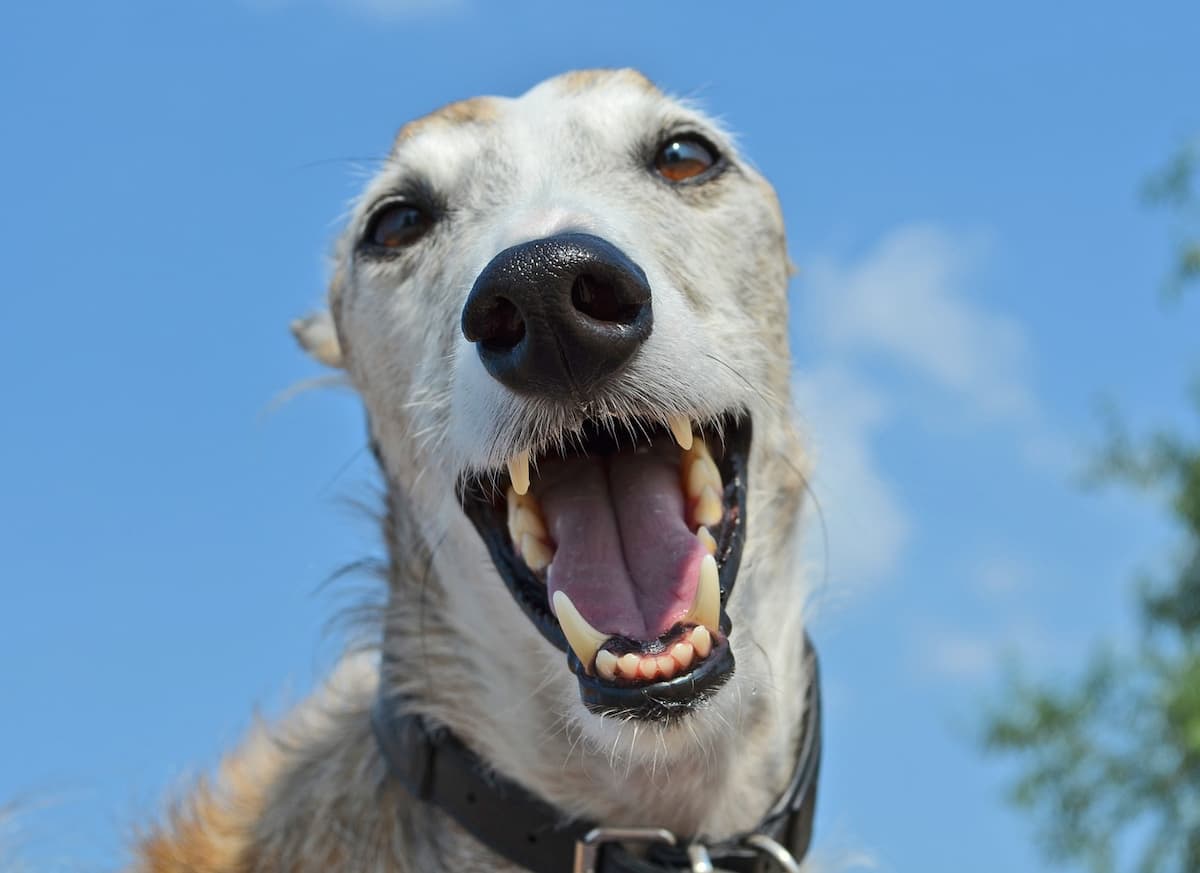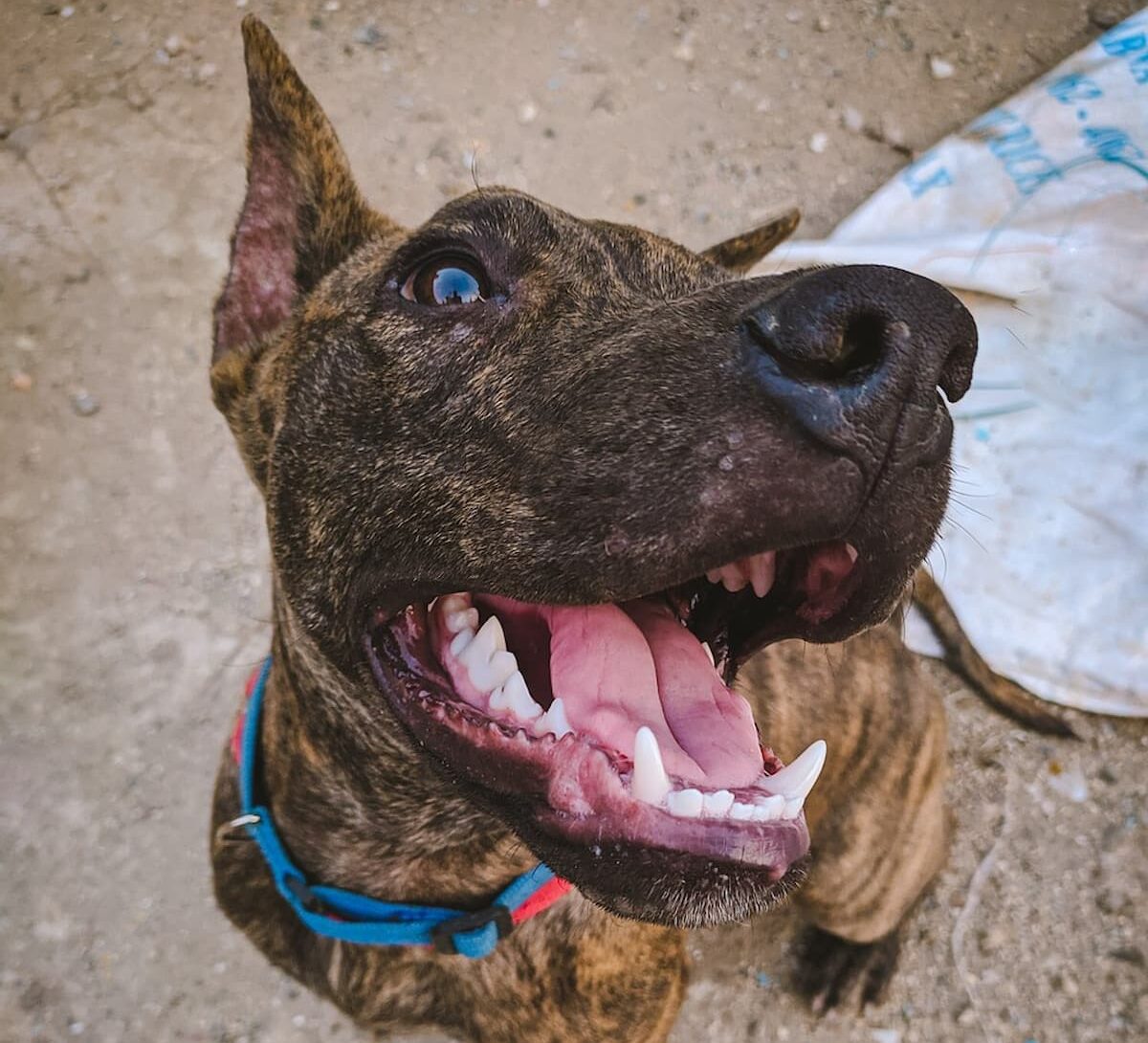Have you ever noticed that your furry best friend’s pearly white teeth are slowly turning an unappealing shade of brown?
It’s a common concern among dog owners, and one that might leave you scratching your head.
Well, fear not! This article will highlight the scientific reasons behind why your dog’s teeth turn brown and, more importantly, what you can do to keep those smiles shining bright.
Why Does a Dog’s Teeth Turn Brown: Understanding the Common Causes
So why DO a dog’s teeth turn brown? Here are some reasons why:
- Plaque buildup: One of the main culprits behind brown teeth in dogs is none other than plaque buildup.Just like in humans, when dogs don’t receive proper dental care, bacteria can accumulate on their teeth, forming a sticky film called plaque.Over time, this plaque can harden and turn into tartar, which not only leaves your furry friend with less-than-desirable breath but can also lead to gum disease and tooth decay.
- Treats and toys: Another factor that can contribute to brown teeth in our canine companions is their love for chewy treats and toys.While these goodies may bring them joy and help keep their teeth clean, some of them can actually cause discoloration.Certain pigments in these items, such as dyes or artificial coloring, can transfer onto your dog’s teeth, giving them a less-than-pearly appearance.
- Food: The type of food your dog consumes can play a role in the color of their teeth.Foods that are high in sugar like berries and tomato sauce or contain artificial additives can contribute to plaque formation and surface stains.Commercial dog food brands are often the main culprit as they contain high amounts of artificial coloring agents that can stain teeth over time.
- Age: Just like in humans, dogs’ teeth can become discolored as they get older.As they age, normal wear and tear on their teeth can cause the enamel to thin out, making the underlying dentin more visible.This dentin is naturally yellow in color, which can give the teeth a brownish appearance.
- Genetics: Genetics also play a role in determining the color of a dog’s teeth.Certain breeds are more prone to teeth discoloration than others.For example, smaller dog breeds like the Chihuahua or Dachshund are more likely to have brown teeth due to genetics.Additionally, some dogs may have naturally thicker enamel, which can make their teeth appear whiter and healthier.
Expert Tips for Preventing and Treating Brown Teeth in Dogs
Here are some expert tips on how you can help treat your pooches’ browning teeth and ensure that their pearly whites remain shiny and healthy.
Regular brushing: Brushing your dog’s teeth daily or at least three times a week can significantly reduce the buildup of plaque and tartar, thus helping to prevent brown teeth. Be sure to use a dog-specific toothpaste and a toothbrush designed for dogs.
Regular dental check-ups: Schedule regular dental check-ups with your veterinarian to monitor the condition of your dog’s teeth and identify any issues early on. They may also recommend professional cleanings if necessary.
Provide dental-friendly toys and treats: Chewing on appropriate toys and treats designed to promote dental health can help remove plaque and tartar, keeping your dog’s teeth clean and healthy. Look for products that have the Veterinary Oral Health Council (VOHC) seal of approval. Or consider opting for natural, dye-free treats that still provide the chewy satisfaction your pup craves.
Provide a healthy diet: Feeding your furry friend a balanced diet with appropriate dental health benefits can go a long way in preventing brown teeth.Look for dog food specifically designed to promote oral health, which often contains ingredients like enzymes, antioxidants, and rough textures that help remove plaque and maintain a healthy smile.
By being proactive and implementing these prevention and treatment strategies, you can help keep your dog’s teeth free from discoloration and ensure their overall dental health.
Remember, regular brushing, a proper diet, and professional dental care are key to maintaining your furry friend’s pearly whites!
FAQ
Q: What causes a dog’s teeth to turn brown?
A: The main culprits behind those brown stains on your dog’s teeth are plaque and tartar buildup.
Just like humans, dogs can also suffer from dental issues. When food particles, saliva, and bacteria mix together, a thin film called plaque starts forming on the teeth.
If it isn’t removed through regular brushing, the plaque hardens and turns into tartar.
Over time, this tartar not only discolors their teeth but can also lead to dental disease, bad breath, and even tooth loss.
Q: How can I prevent my dog’s teeth from turning brown?
A: It’s essential to establish a regular dental care routine for your furry friend to keep their teeth in top-notch condition.
Q: Are there any natural remedies to help whiten my dog’s teeth?
A: While there is no magic potion to make your dog’s teeth instantly white, you can try a few natural remedies to help maintain their oral health.
One popular approach is using coconut oil.
Gently brush your dog’s teeth with a bit of coconut oil two to three times a week.
It contains antibacterial properties which can help combat plaque and freshen their breath.
Q: Can changes in a dog’s diet affect their dental health?
A: Absolutely! A balanced and nutritious diet plays a significant role in maintaining oral health.
Feeding your dog high-quality, dental-friendly food can help keep their teeth cleaner and healthier. Choose kibble specially designed to prevent tartar buildup or consult with your veterinarian for specific dietary recommendations.
Remember, just like us, our four-legged companions need regular dental care to ensure a fresh and shiny smile.
By adopting simple preventive measures and staying consistent with their dental hygiene, you can keep those brown stains at bay and keep your dog’s teeth healthy and strong.
Closing Remarks
From their natural habits to their diets, several factors can contribute to your dog’s teeth turning brown.
Remember, maintaining good dental hygiene is essential for our canine companions’ overall health.
Regularly brushing their teeth, providing them with appropriate chew toys, and ensuring they have a balanced diet all play a crucial role in keeping those pearly whites in top shape.
But hey, a little brown tinge on their teeth is nothing to worry about as long as it’s not accompanied by bad breath or other dental issues.
After all, it adds character to our pups and reminds us of the joy and happiness they bring to our lives.
So, next time you see your dog’s teeth turning brown, don’t panic! Take a moment to assess their lifestyle and dental care routine, make any necessary adjustments, and keep loving them unconditionally.
Because, at the end of the day, it’s not the color of their teeth that matters, but the unconditional love and loyalty they shower upon us.








